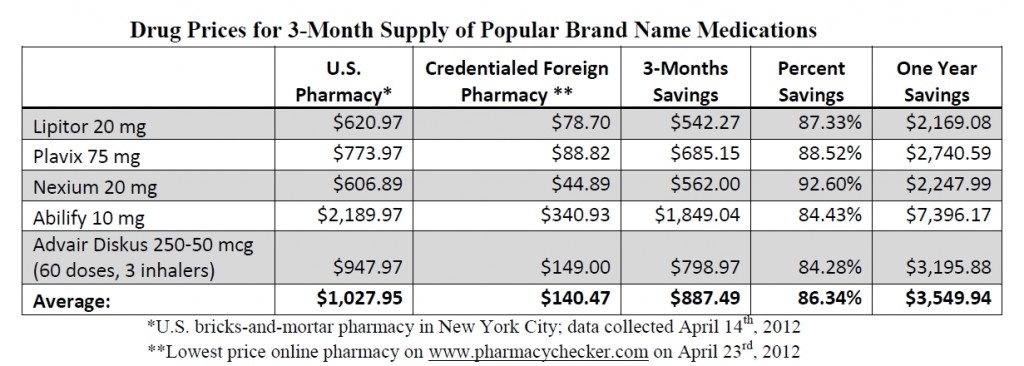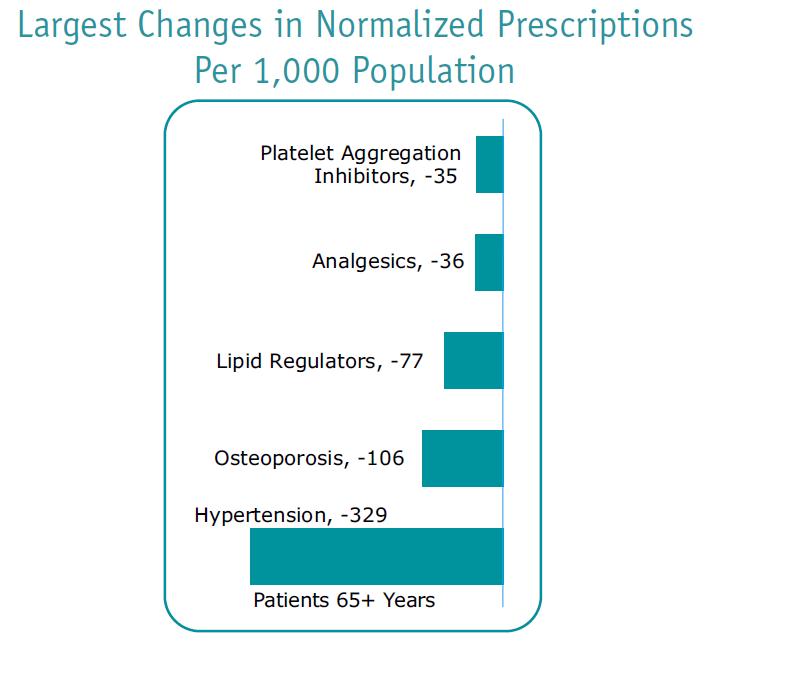by Tod Cooperman, MD, President, PharmacyChecker.com, and Gabriel Levitt, Vice President, PharmacyChecker.com | Apr 23, 2012 | Advocacy, Drug Importation, Drug Prices, Online Pharmacy Verification Services, Personal Drug Importation
The main Op-Ed article in today’s New York Times, “The Wrong Way to Stop Fake Drugs,” calls for the legalization of personal drug importation from credentialed international online pharmacies, such as those approved in the PharmacyChecker.com Verification Program. Authored by Roger Bate, a resident scholar at American Enterprise Institute, the central message of the piece is that the technical ban on personal drug importation does not help the fight against counterfeit drugs but does discourage Americans from getting needed medication. We couldn’t agree more.
Dr. Bate offers evidence-based and compassionate approaches to help uninsured/underinsured Americans obtain medication at affordable prices and reduce the threat of counterfeit medication domestically and abroad. For more on this story see today’s press release
For the past year, Americans who buy medication from international online pharmacies have engaged through RxRights.org to help stop government actions that could block their online access to safe and affordable medication. Taking the cue from this latest op-ed, Americans should start asking their leaders to pass legislation directing the FDA to provide accurate information about online pharmacies. At the very least, the FDA should cease its categorical warning against all international online pharmacies for the simple reason that some are very safe and can help more Americans afford needed medications.
We looked at the top five brand name drugs by sales today to highlight the incredible price discrepancies between US pharmacy and international online pharmacy prices.

Tagged with: affordable prescriptions, international pharmacies, New York Times, Online Pharmacies, prescription drug importation, prescription legislation, Roger Bate
by Gabriel Levitt, Vice President, PharmacyChecker.com and Sam Werbalowsky, Pharmacychecker.com | Apr 6, 2012 | Saving Money on Prescription Drugs, Skipping medications
Some pharmaceutical industry folks, and their political allies, like to make the point that our nation’s seniors no longer need access to lower-cost foreign medication because they now have new and improved Medicare drug plans. But a new report by IMS indicates that drug costs are having a negative effect on public health, including for our seniors’. Put simply, the data indicates that even with the improvements and savings offered by Part D of Medicare (Medicare’s drug benefit), seniors still struggle to afford the drugs they need.
According to the report, medicine use by 65-year-olds decreased 3.1% — the largest decrease in any age group. As reported in the New York Times, Michael Kleinrock, director of research development at the IMS Institute for Health Informatics, a group that consults for the drug industry, said that seniors appear to be “rationing their care as they struggled to pay rising bills on fixed incomes.” Mr. Kleinrock also said, “We’re reaching a tipping point where patients will actually take that increased cost and use less medicine.” Leigh Purvis, who studies drug prices for the AARP explains that the drugs most often cut are those “where you don’t necessarily develop symptoms when you stop taking them.”

Source: IMS Health, LifeLink, Dec 2011; U.S. Census Bureau
Such cutbacks in drug utilization for needed medication are known to lead to increased emergency room visits and greater social costs. Indeed, according to the IMS data, emergency room visits are up by 7.4%. Other studies, such as one by the Commonwealth Fund, have shown that medication nonadherence (skipping your prescribed medication) has been linked to increased emergency room visits, hospital stays, and nursing home admissions. The new IMS report illustrates this correlation as it finds seniors cutting back on needed medication.
Some improvements to Part D of Medicare have already been implemented and the IMS data shows a $1.8 billion decrease in out-of-pocket spending on prescription medication that is likely due to these improvements. More improvements are on the way as long as the Affordable Care Act is not overturned. However, it’s clear that our seniors continue to suffer negative health consequences because of drug affordability problems.
A recent survey by RxRights.org, a non-profit group advocating for Americans who purchase medication from Canada and other countries, shows that just over half of people who personally import medication through online pharmacies are in Medicare. So even with Part D available to them, they actively seek lower drug prices outside the United States, making it abundantly clear that seniors continue to need the option to personally import prescription medication. It is important that they do so safely, using pharmacies approved by third-party verification programs such as PharmacyChecker.com.
Tagged with: affordable prescriptions, Drug Importation, Drug Prices, IMS Institute for Healthcare Informatics, Medicare Drug Plans, Medicare Part D, seniors
by PharmacyChecker.com | Mar 30, 2012 | Drug Importation, Drug Prices, Online Pharmacies, Online Pharmacy Verification Services, Saving Money on Prescription Drugs
A new study published by the National Bureau of Economic Research finds that pharmacies approved in the PharmacyChecker.com Verification Program sell safe medication and can help Americans achieve substantial savings. By filling 370 prescriptions through 41 online pharmacies and testing the authenticity of the medications received, independent researchers from the American Enterprise Institute in Washington, D.C. found no test failures among online pharmacies verified by third-party verifiers, such as PharmacyChecker.com.
Since all online pharmacies approved by PharmacyChecker.com – whether American or foreign – are licensed, require a prescription, and meet high standards of online pharmacy safety, the results of this study are not the least bit surprising. Past studies have shown the exact same results. Still, the FDA ignores the facts and continues a consumer education policy recommending that Americans completely avoid non-US online pharmacies. We believe the FDA’s policy is unethical and unfair. More importantly, its policy is bad for the public health because less access to affordable prescription drugs means fewer Americans will procure needed medications.
For more on this study see our news release.
Tagged with: affordable prescriptions, Drug Prices, international pharmacies, Online Pharmacies, pharmacychecker.com




